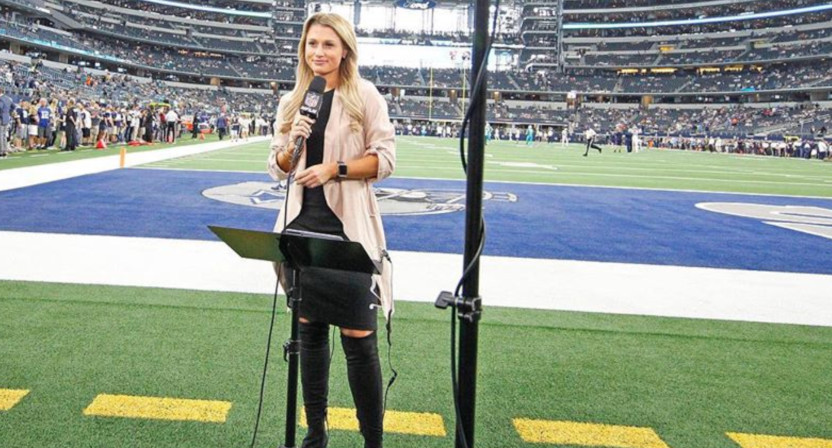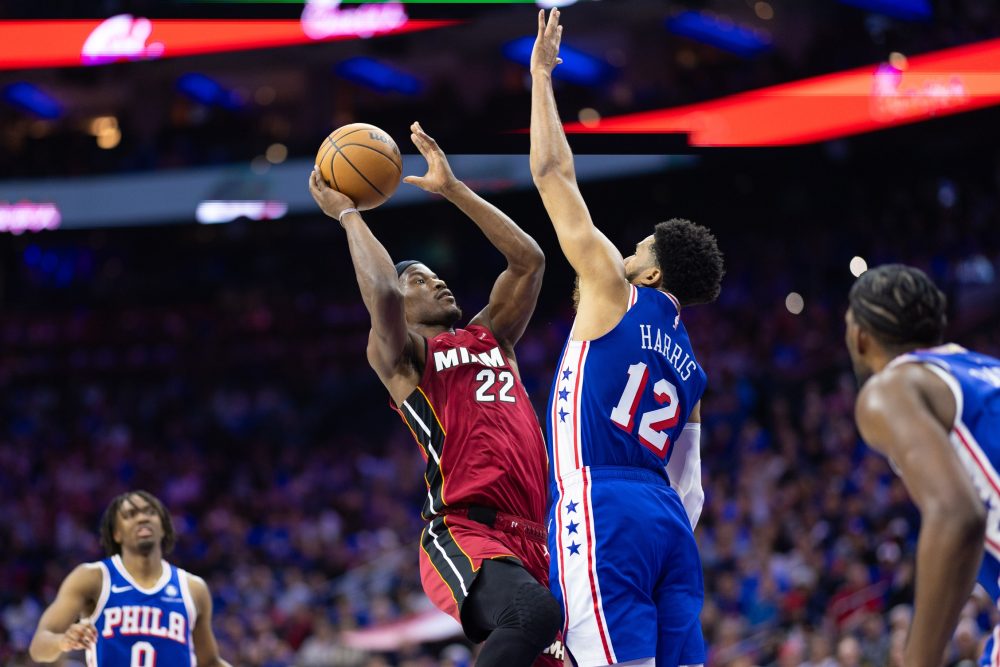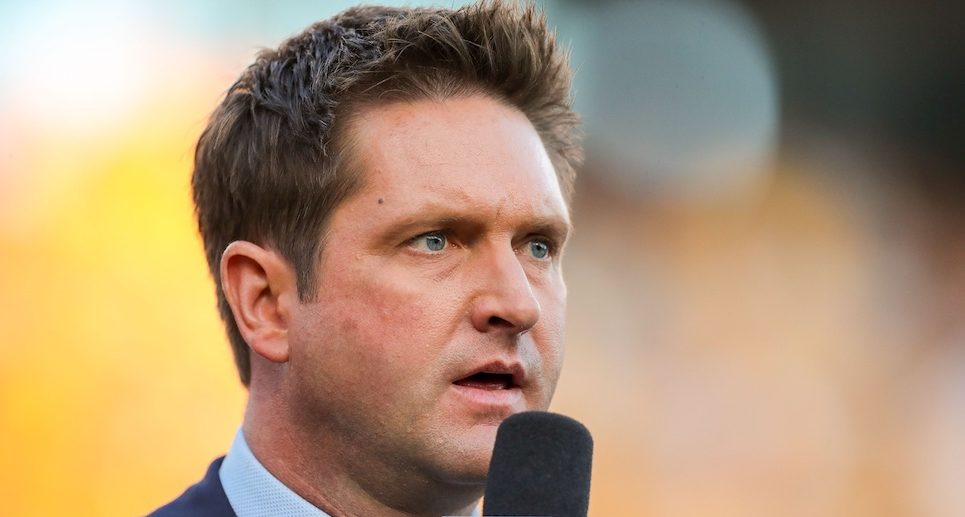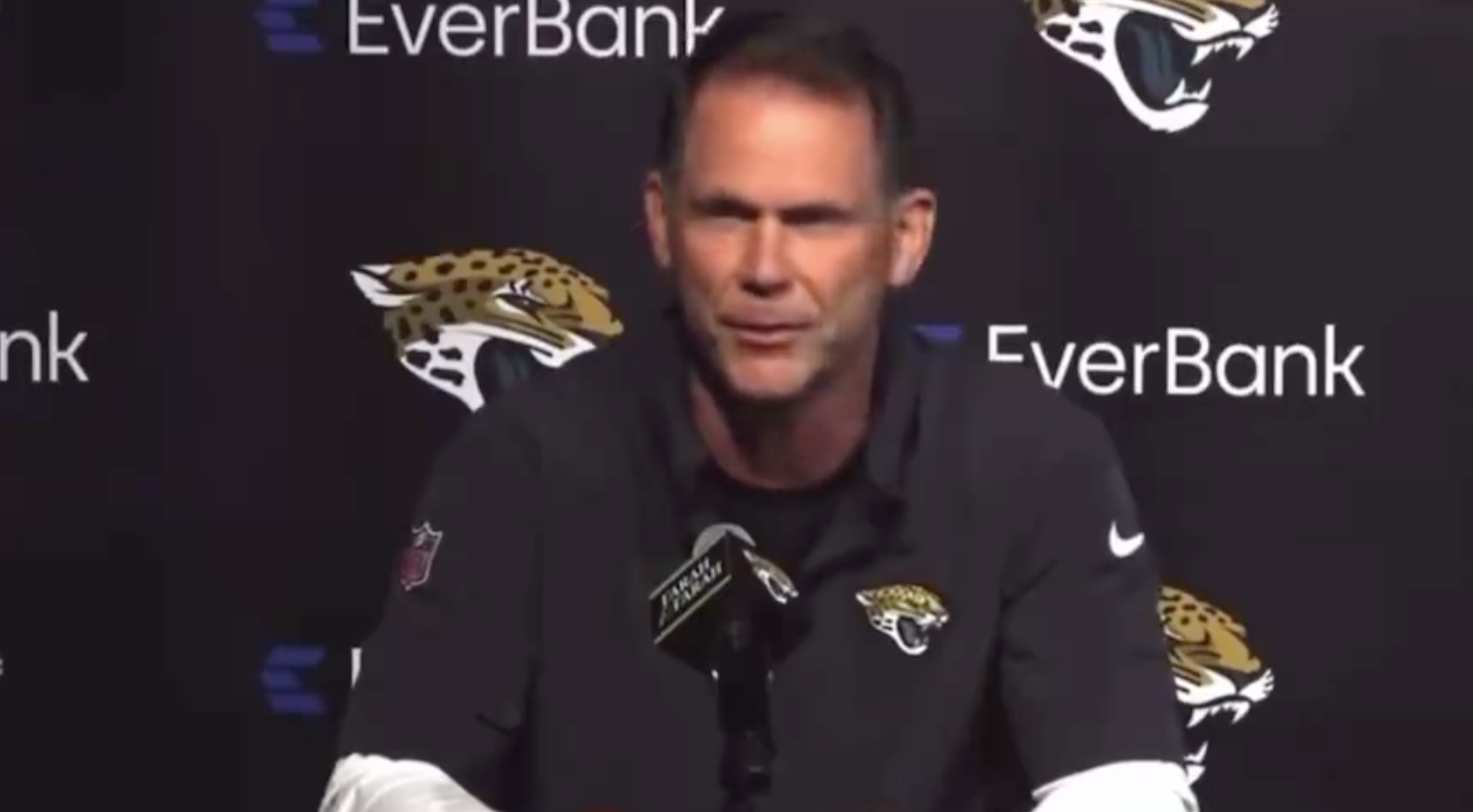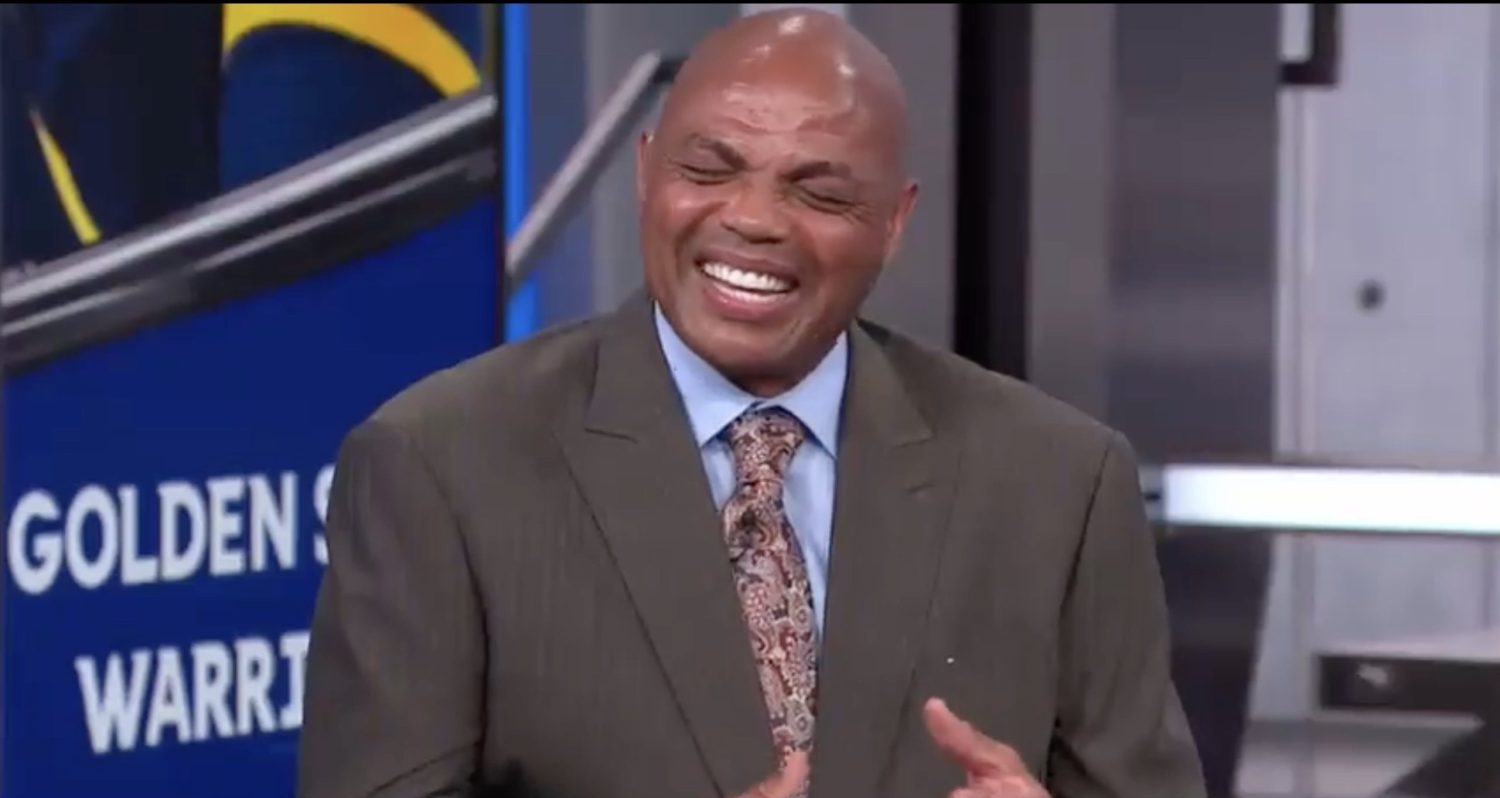Many people in current prominent sports media roles started their career either working for free or working for very little. Some of those people have in turn tried to promote that approach to those looking to get into sports journalism. But promoting working for free in particular always leads to backlash, and there are some good reasons for that backlash. The latest case in point of this particular debate comes from NFL Network’s Jane Slater, who put out a tweet Monday advertising an unpaid “opportunity” for broadcast journalism students:
Broadcast journalism students: exciting internship opportunity for you. Can you set up well lit zoom/Skype calls, record, edit them and want access to the league’s top draft prospects? It’s not with @BobbyBeltTX and I but it is in the DFW area. Unpaid. Great experience. Inbox me
— Jane Slater (@SlaterNFL) March 1, 2021
As has happened before (notably with Darren Rovell’s 2017 suggestion that the Chicago Sun-Times should have Northwestern students write free recaps of basketball games for them instead of using a paid AP recap, but also with many other people who have floated similar ideas), this took a lot of blowback on Twitter. And there’s reason for that. Yes, as Slater later pointed out in follow-up tweets, she got her start with unpaid internships and then low-paying entry level jobs. Yes, she’s far from alone there; many who responded to her noted the value of unpaid work to their careers. And yes, Slater said the “opportunity” in question here is not for full-time work, but for work a couple of times a week for six weeks that “would not be there” if it was paid:
I love how Twitter thinks I’m holding people back by trying to help promote an opportunity to actually move the younger generation forward. An opportunity that would likely not be there bc it’s not in the budget but one that could be invaluable and it’s 6 weeks. Ease up twitter https://t.co/IEPxtETgGe
— Jane Slater (@SlaterNFL) March 1, 2021
2/2 this was not 9-5 and 40 days a week it was a cool experience I thought a college kid could benefit from when talking to someone about enhancing their media access in a pandemic to help athletes and their message. Something they didn’t budget for. 2x a week maybe for 6 weeks
— Jane Slater (@SlaterNFL) March 1, 2021
Update: Slater later added this:
I have listened, engaged & now have some food for thought. Let me explain this “unpaid internship”, how we all got here in the comments section & what I’ve learned. Twitter isn’t the place but good & bad I always hope to learn something & hope you do too❤️ pic.twitter.com/NbMKuDCSvh
— Jane Slater (@SlaterNFL) March 1, 2021
Our original post follows:
This took a giant amount of criticism (much of which can be seen by viewing replies to those tweets), and that makes sense, especially when viewed in the larger context of today’s sports media world. Yes, there are absolutely people who will bite at an unpaid “opportunity” like this, and so this performance center can get away with not budgeting for this seemingly-needed work, or not assigning it to someone they actually do pay. But that doesn’t make it a good practice; it means that some people who might be able to apply if this was a paid position (even paid at a low level) won’t be able to because it’s asking for work for free. So that’s a smaller candidate pool. And smaller candidate pools can lead to worse outcomes for employers as well, especially if they miss out on someone who’d be great at it, but didn’t apply because of the lack of compensation.
And the general practice here (not just the specific posting Slater is talking about) of unpaid to poorly-paid entry-level jobs in sports and sports media is both prevalent and problematic. That’s especially true when it winds up leading to only those who can afford to work for free, often thanks to family support, taking these roles. And those people can then use those unpaid roles as a leg up to land actual decently-paid positions over people who might do well there, but aren’t given as much of a look thanks to their lack of unpaid experience.
And that contributes to the massive diversity problems in sports media, shown in studies like the Associated Press Sports Editors Racial and Gender Report Card (we covered the most recent one there in 2018) and others. If unpaid to lowly-paid entry-level roles remain the norm, and if many outlets hiring for real jobs continue to prefer candidates with that unpaid to low-paid experience, the sports media will continue to be made up of a lot of people who could afford to work for free or very little. And it will continue to underrepresent people who couldn’t afford to work for free. And there is a significant racial component there given the racial wealth gap.
It’s also worth noting that Slater relating this to her mentoring of students who reach out is not a fair comparison. Free mentoring for aspiring journalists is quite a different dynamic than free work for a company that’s gaining value from that work. It’s nice of Slater to want to help those who reach out to her, but she’s far from the only journalist who’s willing to help without pay on that front. Many journalists do like to give back and to help the next generation along. But an established journalist offering free help with advice or with opportunities when you’re already established is one thing. Asking someone who is not yet established to do actual work for you (or, in this case, the center Slater is passing the internship along for) is something very different.
Slater’s comments on how she got started illustrate that she was willing to take unpaid internships and then low-paying jobs, and that’s obviously worked out well for her. She’s worked at KGMH in Denver, at CBS 11 in Dallas, at Longhorn Network, and then at NFL Network since 2014, and she’s done a good job in those roles. But taking unpaid internships and then low-paying jobs en route to fairly-compensated roles is not something that everyone can afford to do.
One other layer…for future journalists…your first few years feel unpaid. I made 16.5k my first two years and worked harder than I’ve ever worked. There is a reason not everyone makes it in this business. I don’t have time for those of you who don’t understand grind ✌🏼 https://t.co/c4iWwPQ1bs
— Jane Slater (@SlaterNFL) March 1, 2021
On that front, one critic pointed out that Slater had previously praised her grandfather, Ray Shockley, for supporting her “emotionally and financially” to get an education at Texas, and that Shockley was president of Wolf Brand Chili, which was sold (along with Van Camp Beans) from Quaker Oats to ConAgra in 1995, with combined sales of the two brands estimated at $180 million annually at that point. It’s unclear just how much Shockley made personally from his work at Wolf Brand, and Slater later disputed those criticisms by calling critics “rotten” and saying they have “no idea” what her family life was like. But it is certainly notable that she, by her own admission, received some family financial support to pursue a college education at a prominent school; that’s something that isn’t the case for many.
To the people shaming me for my hardworking grandfather and parents who instilled a similar work ethic to achieve success, you are rotten. You have no idea about my childhood or my family but it’s not even close to the picture you all paint. Very ugly people on this app
— Jane Slater (@SlaterNFL) March 1, 2021
It should be noted that this discussion shouldn’t be exclusively about Slater or about this specific “opportunity.” The idea of starting as an unpaid or lowly-paid contributor is a much larger issue in the sports media world, and it’s one that’s particularly shown up with some past behavior from large corporations like Bleacher Report and SB Nation. Both of those sites initially got people to write for them for free and made significant money off that content, which was generally not returned to the people who created it.
SB Nation in particular provided employee-level amounts of management and demands for far less than employee-level compensation, which led to lawsuits and settlements. Bleacher Report was bought by Turner for $175 million in 2012, but most of that money didn’t go to the people who’d written there. In both cases, those corporations got valuable work without paying the people who produced it at a commensurate rate. (Things have changed at least somewhat since then at both sites, but there are still some criticisms for them; what’s really notable to the discussion here is what they did in the past, though.)
And that expands somewhat to many entry-level media jobs. Many sports media corporations, whether national or local, could afford to pay their entry-level contributors more than they do, and receive significantly more value from that work than they return to the people who do it. But they choose not to raise that compensation.
However, this doesn’t always produce the best outcome in terms of journalism, or in terms of diversity. It limits your pool of applicants to who’s financially able to survive at that level of compensation. Yes, some of those applicants absolutely will be very skilled and will do a good job. But some may not be the best possible candidates. And some excellent candidates may never apply because of the job being undervalued.
The latest
That leads into one last angle missed by the comments from Slater and those agreeing with her. Yes, absolutely, there are many people who started with unpaid or lowly-paid jobs and found full-time roles in sports media in the end (Slater has retweeted many of them). But an interesting part of those comments is the seeming justification of “I did this and it worked out for me, so new people should do it too.”
First, there’s survivor bias there. The people commenting that are not the many, many people who have been driven out of sports journalism (we explored a few of those stories in 2017) by layoffs, low pay and more. Beyond that, though, it’s disappointing to hear essentially “I suffered, therefore you shall suffer also.” Not paying or underpaying people isn’t the only way to run a media company, and past entry-level suffering shouldn’t be the norm for everyone to follow.
In the end, of course Slater can post this “opportunity” if she wants to, and of course people can apply if they feel that’s worth their time. But the critics have a point that it’s disappointing to see the idea of unpaid work promoted as a norm and as a standard by a prominent figure like Slater, and by the people who have supported her.
Many sports media outlets can afford to offer actual jobs rather than unpaid “opportunities,” even if there are those who would take it without pay. And actual decently-compensated jobs could draw a stronger and broader applicant pool, not just the pool of those who can afford to work for free or for very little. And that could lead to a better sports media landscape overall.
[Photo from The Spun]

